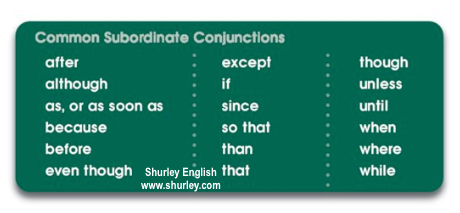Are complex sentences all that complex?
/Are complex sentences all that complex? Not really! If you want to see how simple complex sentences can be for young writers, read on.
When I work with young, developing writers, I like to make new concepts seem like they’re no big deal, even if they are a bit abstract. Take writing complex sentences, for example. When you write a complex sentence, all you are doing is making two related ideas compromise a bit in the message they carry. In other words, one of the two sentences will be dependent on the other. By using a simple tool called a subordinate conjunction, you can make one of the two sentences subordinate to the other. It does not matter which of the two sentences gets subordinated, nor does the order or position of the sentences matter—they just have to make sense.
Look at this:
Because the traffic in town is so jammed, I take a different route.
Now watch:
I take a different route when the traffic in town is jammed.
In the examples above, I have the same complex sentence written two ways. The first one requires a comma after the “Because Phrase.” The second one does not require a comma. Now, did you notice I called the first sentence in the first example a “Because Phrase?” The key to getting kids to write complex sentence is all in how you say it! When I want to see my students stretching their writing, grasping at abstract concepts, and wielding their word power, I ask them to use a “______ Phrase” to start their sentence. In the chart below, any of the subordinate words or phrases work with this writing strategy.
I might say something like:
“Okay, writers. For the next sentence practice, please write me a sentence that begins with an “If (insert any subordinate conjunction here) Phrase, followed by a comma.”
Most students seem to naturally infer that a second independent sentence must follow! I always call attention to the comma that comes after an initial subordinate sentence. If the students decide to make the second sentence subordinate, I tell them to “kick out the comma.”
I will do the same many times throughout a week of writing. I might ask for a “When Phrase,” a “Because Phrase”, a “Since Phrase,” or any of the subordinate words from the list above followed by the word “Phrase.” I don’t bother to get into all the nuts and bolts of complex sentences with very young writers, but the point is—students can learn to write complex sentences easily when you use this strategy.





































































































